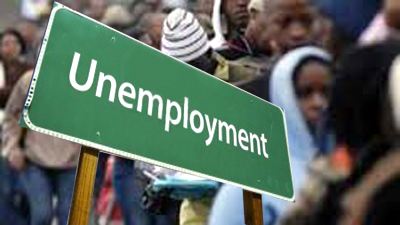Finance Minister Nhlanhla Nene’s 2015 budget speech, updating the nation on the latest information necessary to assess the economy’s performance last year and help project its path going forward, is coming amid high expectations across the spectrum, especially the unemployed.
One point stands out from all the rest: For all the talk about improved outlook of the economy growth – the economy grew last year at a rate of about 1.4% – the nation expects Nene to vigorously push the kind of high-profile development projects that are essential in putting the unemployed back to work and getting the economy back into reasonable shape.
That modest economic growth percentage is not inherently unsatisfactory, given the complex global economic constrains facing countries the world over.
However, the problem is that modest growth has never been enough to overcome the damage caused by the scourge of chronic unemployment, poverty, and income inequality – to which many South Africans see a prudent use of public revenue as central in providing solutions.
Indeed, under the prevailing economic hardship, the high expectations during this second term of President Jacob Zuma administration are largely underpinned by the urgency revealed in the latest thematic study on unemployment.
Here, Statistics South Africa (Stats SA) confirmed that the official unemployment rate, currently at 25.4%, has been persistently high over the post-economic recession period while labour absorption rates remained below the levels reached before the recession.
The report also states that as many as 1.5-million of the 5.1-million unemployed people last year had been looking for a job for more than five years, up from 974 000 in 2008.
This situation persists under several years of repeated election promises – as recent as ahead of the May 2014 national elections – for decent jobs and a better life for all.
Modest growth has never been enough to overcome the damage caused by the scourge of chronic unemployment, poverty, and income inequality
Secondly, another dimension of this pressing challenge that the speech must respond to is that the economy continues to shed jobs, as between 50 000 and 60 000 people claiming for benefits from the Unemployment Insurance Fund (UIF).
In 2014, alone the fund provided relief to over 890 000 unemployed people last year, accounting for more than R6.2bn in disbursements.
A large number of the unemployed still cannot access protection under consumer laws.
Ironically, you can only apply for debt counselling if you have an income and something to offer creditors, so more and more people are using their UIF money to repay their creditors and try and meet their daily living expenses, leading to the chronic destitution of even more households.
Thirdly, when it comes to consumer credit, South Africa still has its back against the wall.
Take a look at the Consumer Credit Market Report issued by the National Credit Regulator (NCR), which offers insight into how much credit is being granted nationally, and offers data on SA’s total debtor’s book.
The latest figures reveal that of all the credit-active consumers, just under 20 million, 19.7% were three or more months in arrears, 12.9% had adverse listings and 14.3% had judgments or administrative orders.
To date, there are over 594 770 debt stressed people under review or administration since the process was introduced in 2007.
Fourthly, the extent of the gravity of the situation was also highlighted in the August 2014 National Treasury statistics showing that municipalities are owed R94 billion, of which households owe close to R58 billion.
These statistics show that a significant number of consumers use much of their disposable income to service debt and that unsecured lending is what is largely driving the debt spiral as consumers are inclined to default on school fees first, followed by rent payments and insurance, and then municipal accounts.
Also, data from the South African Reserve Bank for the third quarter of 2014 show that total household liabilities amounted to R1 603, of which an estimated 95.9% is consumer credit, with other debt and liabilities adding to about 4.9%.
Although this is still a small percentage in relation to other countries we trade with, it makes up approximately 44.4% of the total number of accounts.
To change this situation, the speech is expected to announce proactive measures directed at household level.
The economy, in short, is still wounded, and the route to recovery that will have an impact at household level runs through government.
When so many people are without jobs for a long time or have to make do with increasing irregularity and unpredictability of income, their households face painful adjustments including retrenching domestic workers, delaying entry of children into early childhood development pre-school system, food insecurity, and other necessities.
There is now, more than ever, a need for consistent implementation of different policies can change norms that delay job-creation and keep wages depressed, keep children out of early childhood development centres and primary school, lead to disconnections of poor households from essential services such as water and electricity.
This will also require improved allocation of resources to regulatory bodies such as the Competition Commission, National Consumer Commission, National Credit Regulator and other similar institution in order to enhance individual household protection against corruption, as well as unlawful and unscrupulous business practices.
There is not a lot of time, though. South Africa will soon be preparing for the 2016 local government elections, and that comes with unavoidable disruptive transitions.
Therefore, a vigorous push for decent jobs will be a good signal that the government cares. The extent to which promises this speech will lead to decent job -creation, if any, remains to be seen.
– By


